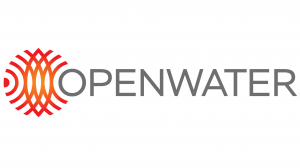University of Birmingham Pioneers Use of Openwater’s Open-Motion Device in Stroke Recovery Research
The university will use the device in a clinical trial to track movement recovery and explore new possibilities for mobile stroke diagnostics.
SAN FRANCISCO, CA, UNITED STATES, August 19, 2025 /EINPresswire.com/ -- Openwater, an open-source medical technology company delivering portable, hospital-grade diagnostic and therapeutic devices, today announces the University of Birmingham in the United Kingdom is the first to receive the latest version of Openwater’s Open-Motion device. The university’s clinical research team plans to use the technology in a new trial studying stroke rehabilitation in patients experiencing loss of movement.
Open-Motion is a lightweight, portable, non-invasive diagnostic platform that uses near-infrared light to precisely track blood flow and blood volume below the surface of bodily tissue. Its modular, wearable design allows for easy placement on different parts of the body, and its open-source software enables researchers to tailor the device for a range of clinical and research purposes.
The University of Birmingham’s clinical trial will monitor blood flow in the brain while stimulating affected limbs in stroke patients as they progress through rehabilitation. The University of Birmingham’s research is investigating whether electrically stimulating the common peroneal nerve can improve blood flow to the brain more effectively than using an intermittent pneumatic compression device in the crucial first 48 hours after an ischemic stroke. By analyzing changes in blood volume and movement, researchers hope to better understand the recovery process, evaluate treatment effectiveness, and develop more personalized therapy protocols.
Lead researcher Anirban Dutta, Ph.D., a biomedical engineer and expert in noninvasive technologies, works closely with the UK’s National Health Service (NHS) to bring promising innovations into clinical care. While this study will primarily focus on tracking movement recovery after stroke, Dr. Dutta is also exploring how tools like Open-Motion could ultimately be deployed in mobile settings, such as ambulances, to support stroke diagnosis in the field.
“By better understanding how blood flow is regulated after a stroke, we aim to develop innovative neuroengineering solutions that accelerate recovery and enhance mobility for stroke patients,” said Dr. Dutta, principal investigator at the University of Birmingham. “With Open-Motion, we see the potential for an affordable and scalable model, enabling advanced stroke rehab in clinics and hospitals across the country.”
Open-Motion’s open-source platform invites researchers worldwide to collaborate and rapidly advance the technology for new indications. The device’s affordability and adaptability mark a major step toward democratizing access to advanced neurological diagnostics.
“Stroke care is one of the areas where this device has the most immediate impact, as it’s the leading cause of disability in the UK,” said Aaron Timm, CEO of Openwater. “We’re excited to partner with the University of Birmingham to explore how Open-Motion can innovate new treatments and improve motor function and mobility for those sidelined by this catastrophic event.”
To learn more about Openwater and its open-source devices, visit www.openwater.health.
About Openwater
Openwater is an AI-driven medical technology company founded by Dr. Mary Lou Jepsen to make hospital-grade care universally accessible. Backed by notable supporters including Khosla Ventures, Plum Alley, BOLD Capital Partners, Vitalik Buterin, Esther Dyson, and Peter Gabriel, Openwater employs open-source development and consumer electronics manufacturing to lower the cost and speed the delivery of non-invasive medical devices. The company collaborates with leading institutions worldwide to research, validate, and distribute these technologies, aiming to reach patients across borders and income levels.
Madeleine Bumstead
Openwater
mbumstead@ampublicrelations.com
Visit us on social media:
LinkedIn
Legal Disclaimer:
EIN Presswire provides this news content "as is" without warranty of any kind. We do not accept any responsibility or liability for the accuracy, content, images, videos, licenses, completeness, legality, or reliability of the information contained in this article. If you have any complaints or copyright issues related to this article, kindly contact the author above.

